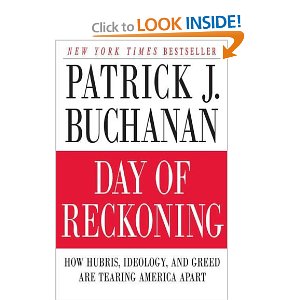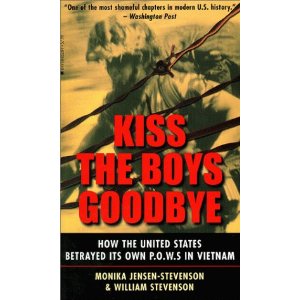 Setting the Stage for the NEXT Reform of National Security, April 10, 2008
Setting the Stage for the NEXT Reform of National Security, April 10, 2008
James R., III Locher
I bought this book at the Army War College after hearing its author speak to the Army Strategy Conference on “Rebalancing the Instruments of National Power.” I have posted 29 pages of notes at Earth Intelligence Network, with a page or two from Jim Locher's brilliant luncheon presentation.
Having spent the evening with this book, and with an understanding of what the Project on National Security Reform will be providing to the next President of the United States, I found the book totally inspiring, and most important for what it represents as proof that “Phase II” of national security reform is not just possible, but likely in 2009.
A few highlights:
1) The service chiefs fought this bitterly, to include lies and deceptions and fabricated studies.
2) Chairman of the Joint Chiefs Jones, and later Crowe, get high praise for having the gumption to call for reform in the first case, and agree with reform in the second, but they were virtual outcasts for doing so.
3) Senator Sam Nunn will be back. As I look at the make-up of the Project, which also benefits from Newt Gingrich's brilliance and his mastery of history and House protocol, I have a very strong feeling that the follow-on to Goldwater-Nichols, a National Security Act of 2009, is not just viable, but undefeatable.
4) I've known Jim Locher as a thoughtful and courteous person for over a decade, and this book confirms my personal view that he is one of the most loyal, dedicated, intelligent, and responsible individuals we have, totally committed to public service in the purest sense of the word. The reviewer who demeans the author has no basis, in my view, for his negative judgement.
I have just one worry: everyone is beginning to realize that neither John McCain nor Barack Obama have a strong bench, and at the same time everyone I talk to seems to believe they will repeat the long-standing mistake of seeking to implement a single-party executive. This they must not be allowed to do. Please visit Reuniting America to understand the concept of Transpartisanship, in which ALL parties (including Libertarians, Reforms, Greens, and others) share leadership positions so that we might harness the COMPLETE distributed intelligence of the entire Nation.
The Project will provide a preliminary report on Phase II of national security reform in early July 2008, and a longer report in September 2008. Once a President is elected, a complete set of Presidential directives, draft legislation, and recommended amendments to Congressional jurisdictions and protocols, will be provided so that the President might be ready to implement national security reform within 100 days of taking office. We cannot wait for the Quadrennial Defense Review in the second year of the Presidency; those focusing their time on influencing that document would be well-advised to contribute shorter versions of their work sooner to the Project. By 1 May 2008.
In his comments today at the Army War College, the author told us that everyone said this would be impossible; that it was lunatic, and so on. This book is a deep historical account of how good intentions across party lines can achieve the impossible and serve the public. While I disrespect both party machines for failing to control a reckless and arrogant presidency hijacked by the vice president, I do believe that we can create a narrative on the need for reform that the public will accept and then demand of its Congress.
I will miss Barry Goldwater, the last true conservative I remember, but I am, in putting this book down, confident that John McCain and Sam Nunn and others can find common ground. This book proves the impossible can be achieved, and I believe this book is essential substantiation that the next step: civilian professionalization, inter-agency operations and authorities, multinational information sharing, a robust “white hat” capability, and a national open source agency that can influence how $2 trillion a year in other people's money is spent eradicating the ten high level threats to humanity, are all achievable in the near term.
See also my reviews of the following books that complement this one:
On the Psychology of Military Incompetence
Flawed by Design: The Evolution of the CIA, JCS, and NSC
The Rules of the Game: Jutland and British Naval Command
Bureaucratic Politics And Foreign Policy
The Pathology of Power
The Sorrows of Empire: Militarism, Secrecy, and the End of the Republic (The American Empire Project)
The Unconquerable World: Power, Nonviolence, and the Will of the People
Wilson's Ghost: Reducing the Risk of Conflict, Killing, and Catastrophe in the 21st Century
Breach of Trust: How Washington Turns Outsiders Into Insiders
Vice: Dick Cheney and the Hijacking of the American Presidency









